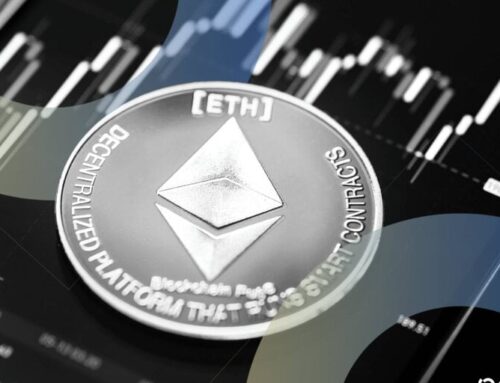How the plan to reopen government could set legal hemp back years and risk 300k jobs
November 11, 2025
The U.S. Senate voted to end the longest government shutdown in American history by advancing a funding package that includes a controversial provision banning many hemp-derived intoxicating products — a move critics warn could roll back progress in the nation’s cannabis industry by a decade.
The bill, which passed the Senate 60–40 on Nov. 10 must still clear the House before the government can reopen.
But buried in the 141-page appropriations package is language that could reshape — or dismantle — the $28 billion hemp-derived cannabinoid sector that emerged after Congress legalized hemp in 2018.
A bipartisan success turned bargaining chip
When Congress passed the Agriculture Improvement Act of 2018, known as the Farm Bill, it legalized hemp and classified it differently than federally illegal cannabis based on its content of THC, the drug’s primary active compound.
But many argue the 2018 definition left a loophole: producers began extracting other intoxicating cannabinoids — like delta-8 and delta-10 THC — from legal hemp, creating products with psychoactive effects that skirted marijuana laws.
The Senate deal: funding the government, banning hemp-THC
Supporters coin the provision a “minibus” bill that funds key agencies — including Agriculture, the FDA, Veterans Affairs, and the legislative branch — through Jan. 30, 2026.
But tucked inside is a clause that would outlaw “the unregulated sale of intoxicating hemp-based or hemp-derived products, including delta-8 THC,” while preserving non-intoxicating CBD and industrial hemp uses.
Under the proposal, hemp-derived products intended for human or animal consumption:
- Cannot contain synthetic cannabinoids or compounds made outside the plant
- Must include no more than 0.3% total THC and no more than 0.4 milligrams total THC per container
- Must come only from cannabinoids “capable of being naturally produced” by the hemp plant
Supporters of the bill say the language closes the loophole that allowed intoxicating hemp products to flood convenience stores and online marketplaces without FDA oversight while opponents call it an industry-killing overreach.
A disagreement between Kentucky senators
Sen. Rand Paul (R-Ky.) has become the loudest critic of the hemp ban language, warning that it would “kill an entire industry” and unfairly punish Kentucky farmers.
He initially stalled the bill, and took to the social media platform to clear the air — saying his intentions were not to delay the bill but rather to continue doing his job by protecting Kentucky farmers.
“There is extraneous language in this package that has nothing to do with reopening the government and would harm Kentucky’s hemp farmers and small businesses,” Paul wrote on X.
“Standing up for Kentucky jobs is part of my job.”
His colleague, Senate Minority Leader Mitch McConnell (R-Ky.) — who championed hemp’s original legalization — has taken the opposite stance.
McConnell says his intent in 2018 was to create a market for hemp grain, fiber, and CBD, not intoxicating products, the Cannabis Times reported.
“My 2018 hemp bill sought to create an agricultural hemp industry, not open the door to the sale of unregulated, intoxicating, lab-made, hemp-derived substances,” McConnell said earlier this year.
Industry fallout: $28 billion and 300,000 jobs at risk
The U.S. Hemp Roundtable, an industry advocacy group, condemned the proposal, estimating it could wipe out 95% of the hemp-derived cannabinoid market, cost 300,000 American jobs, and eliminate $1.5 billion in annual state tax revenue.
“Our industry is being used as a pawn as leaders work to reopen the government,” USHR General Counsel Jonathan Miller said in a release.
“Recriminalizing hemp will force American farms and businesses to close and disrupt the well-being of countless Americans who depend on hemp.”
Though consumer safety advocates argue the change is long overdue.
According to Reuters, the FDA and several states have warned of mislabeled or unsafe hemp-THC products being sold in gas stations, vape shops, and online with little oversight — particularly those marketed toward minors.
A broader call for cannabis reform
The hemp battle has become a deeper rift in federal cannabis policy.
While more than half of U.S. states have legalized marijuana in some form, federal law continues to treat hemp and cannabis differently — even though both come from the same plant species.
The current fight exposes how a regulatory patchwork has allowed industries to expand faster than Washington can define them.
What’s next
The continuing resolution would fund the federal government through Jan. 30, 2026, giving Congress time to draft longer-term spending measures.
But for now, the hemp provision has transformed a shutdown-ending compromise into a high-stakes agricultural and economic showdown.
If you purchase a product or register for an account through a link on our site, we may receive compensation. By using this site, you consent to our User Agreement and agree that your clicks, interactions, and personal information may be collected, recorded, and/or stored by us and social media and other third-party partners in accordance with our Privacy Policy.
Search
RECENT PRESS RELEASES
Related Post



